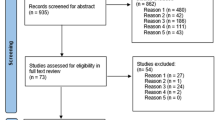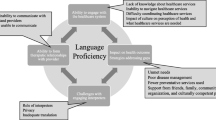Abstract
Background: Tuberculosis (TB) constitutes one-quarter of all avoidable deaths in developing countries. In the Eastern Cape, South Africa, TB is a public health problem of epidemic proportion. Poor compliance and frequent interruption to treatment are associated with increased transmission rates, morbidity, and costs to TB control programs. This study explored determinants of (non-)compliance from the patients’ perspective.
Methods: Semi-structured interviews were conducted with patients (33 treatment compliers and 34 treatment non-compliers) and 14 community health workers from local community clinics and the hospital in the township of Grahamstown, Eastern Cape, South Africa. Q-methodology was used. Patients rank ordered 32 opinion statements describing determinants of treatment compliance from the TB adherence model. By-person factor analysis was used to explore patterns in the rankings of statements by compliers and non-compliers. These patterns were interpreted and described as patient views on determinants of compliance with treatment. Patients and community health workers selected the top five determinants of compliance and non-compliance.
Results: Compliers believed that completing treatment would cure them of TB. Economic prospects were crucial for compliance. Compliers felt that the support of the government disability grant helped with compliance. Non-compliers believed that stigmatization had the greatest impact on non-compliance, together with the burden of disease, the arrangements involved with receiving treatment, restrictions accompanying treatment, and the association of TB with HIV/AIDS infection.
Conclusions: Stigmatization makes TB a ‘social disease’. Individual motivation and self-efficacy appear to have a considerable effect on compliance, but, for non-compliers, the general lack of job prospects and being able to provide for themselves or their family also makes TB very much an ‘economic disease’.





Similar content being viewed by others
References
WHO. Factsheet tuberculosis. 2006 [online]. Available from URL: http://www.who.int/entity/mediacentre/factsheets/ fs104/en/index.html [Accessed 2006 Sep 1]
WHO. Global tuberculosis control: surveillance, planning, financing. WHO report 2005 [online]. Available from URL: http://www.who.int/tb/publications/global_report/ 2005/en/index.html [Accessed 2006 Sep 1]
Walzl G, Beyers N, van Helden P. TB: a partnership for the benefit of research and community. Trans R Soc Trop Med Hyg 2005 Oct; 99Suppl. 1: S15–9
de Valliere S, Barker RD. Poor performance status is associated with early death in patients with pulmonary tuberculosis. Trans R Soc Trop Med Hyg 2006 Jul; 100(7): 681–6
Johansson E, Long NH, Diwan VK, et al. Attitudes to compliance with tuberculosis treatment among women and men in Vietnam. Int J Tuberc Lung Dis 1999 Oct; 3(10): 862–8
Comolet TM, Rakotomalala R, Rajaonarioa H. Factors determining compliance with tuberculosis treatment in an urban environment, Tamatave, Madagascar. Int J Tuberc Lung Dis 1998 Nov; 2(11): 891–7
Murray C, De Jonghe E, Chum HJ, et al. Cost-effectiveness of chemotherapy for pulmonary tuberculosis in three subsaharan countries. Lancet 1991; 338: 1305–8
Van der Walt HM, Swartz L. Task orientated nursing in a tuberculosis control programme in South Africa: where does it come from and what keeps it going? Soc Sci Med 2002; 54: 1001–9
Stephenson W. Correlating persons instead of tests. Charact Pers 1935; 4: 17–24
Brown SR. Political subjectivity: applications of Q-methodology in political science. New Haven (CT): Yale University Press, 1980
Cross RM. Exploring attitudes: the case for Q methodology. Health Educ Res 2005; 20(2): 206–13
Watts S, Stenner P. Doing Q methodology: theory, method and interpretation. Qual Res Psychol 2005; 2: 67–91
Van Exel NJA, de Graaf G. Q-methodology: a sneak preview. 2005 [online]. Available from URL: http://www.qmethodology. net/index.php?page=1&year=2005 [Accessed 2006 Mar 1]
Tielen M, van Staa AL, Jedeloo S, et al. Q-methodology to identify young adult renal transplant recipients at risk for nonadherence. Transplantation 2008; 85(5): 700–6
Bryant LD, Green JM, Hewison J. Understandings of Down’s syndrome: a Q methodological investigation. Soc Sci Med 2006 Sep; 63(5): 1188–200
Risdon A, Eccleston C, Crombez G, et al. How can we learn to live with pain? A Q-methodological analysis of the diverse understandings of acceptance of chronic pain. Soc Sci Med 2003 Jan; 56(2): 375–86
Van Exel NJA, de Graaf G, Brouwer WBF. “Everyone dies, so you might as well have fun!” Images of youths about their health lifestyle. Soc Sci Med 2006; 63(10): 2628–39
Van Exel NJA, de Graaf G, Brouwer WBF. Care for a break? An investigation of informal caregivers’ attitudes toward respite care using Q-methodology. Health Policy 2007; 83(2/3): 332–42
Kreuger L, van Exel NJA, Nieboer A. Needs of persons with severe intellectual disabilities: a Q-Methodological study of clients with severe behavioural disorders and severe intellectual disabilities. J Appl Res Intellect Disabil 2008; 21(5): 466–76
Stenner PHD, Dancey CP, Watts S. The understanding of their illness amongst people with irritable bowel syndrome: a Q-methodological study. Soc Sci Med 2000; 51(3): 439–52
Barnhoorn F, Adriaanse H. In search of factors responsible for noncompliance among tuberculosis patients in Wardha District, India. Soc Sci Med 1992 Feb; 34(3): 291–306
Mishra P, Hansen EH, Sabroe S, et al. Socio-economic status and adherence to tuberculosis treatment: a case-control study in a district of Nepal. Int J Tuberc Lung Dis 2005 Oct;9(10): 1134–9
Solomon M, De Jong W, Jodrie TA. Improving drug regimen adherence among patients with sexually transmitted disease. J Compliance Health Care 1988; 3: 41–56
Westaway MS. Knowledge, beliefs and feeling about tuberculosis. Health Educ Res 1989; 4(2): 205–11
Auer C, Lagahid JY, Tanner M, et al. Diagnosis and management of tuberculosis by private practitioners in Manila, Philippines. Health Policy 2006 Jul; 77(2): 172–81
Fujiwara PI, Clevenbergh P, Dlodlo RA. Management of adults living with HIV/AIDS in low-income, high-burden settings, with special reference to persons with tuberculosis. Int J Tuberc Lung Dis 2005 Sep; 9(9): 946–58
De Villiers S. Tuberculosis in an anthropologic perspective. South Afr J Ethnol 1991; 14(3): 69–72
Rowe KA, Makhubele B, Hargreaves JR, et al. Adherence to TB preventive therapy for HIV-positive patients in rural South Africa: implications for antiretroviral delivery in resource-poor settings? Int J Tuberc Lung Dis 2005 Mar; 9(3): 263–9
Jaiswal A, Singh V, Ogden JA, et al. Adherence to tuberculosis treatment: lessons from the urban setting of Delhi, India. Trop Med Int Health 2003 Jul; 8(7): 625–33
Singh V, Jaiswal A, Porter JD, et al. TB control, poverty, and vulnerability in Delhi, India. Trop Med Int Health 2002 Aug; 7(8): 693–700
Wares DF, Singh S, Acharya AK, et al. Non-adherence to tuberculosis treatment in the eastern Tarai of Nepal. Int J Tuberc Lung Dis 2003 Apr; 7(4): 327–35
Johansson E, Diwan VK, Huong ND, et al. Staff and patient attitudes to tuberculosis and adherence with treatment: an exploratory study in a district in Vietnam. Tuber Lung Dis 1996 Apr; 77(2): 178–83
Black B, Bruce ME. Treatment in tuberculosis: the essential role of social work. Soc Work Health Care 1998; 26(3): 51–68
Auer C, Sarol J, Tanner M, et al. Health seeking and perceived causes of tuberculosis among patients in Manila, Philippines. Trop Med Int Health 2000 Sep; 5(9): 648–56
Dodor EA, Afenyadu GY. Factors associated with tuberculosis treatment default and completion at the Effia-Nkwanta Regional Hospital in Ghana. Trans R Soc Trop Med Hyg 2005 Nov; 99(11): 827–32
Escott S, Walley J. Listening to those on the frontline: lessons for community-based tuberculosis programmes from a qualitative study in Swaziland. Soc Sci Med 2005; 61: 1701–10
Liefooghe R, Michiels N, Habib S, et al. Perception and social consequences of tuberculosis: a focus group study of tuberculosis patients in Sialkot, Pakistan. Soc Sci Med 1995 Dec; 41(12): 1685–92
Schmolk P, Atkinson J. PQMethod software and manual. Freeware [online]. Available from URL: http://www.lrzmuenchen.de/schmolck/qmethod/ [Accessed 2006 Mar 1]
Munro SA, Lewin SA, Smith HJ, et al. Patient adherence to tuberculosis treatment: a systematic review of qualitative research. PLoS Med 2007; 4(7): e238
Sagbakken M, Frich JC, Bjune GA. Perception and management of tuberculosis symptoms in Addis Ababa, Ethiopia. Qual Health Res 2008; 18(10): 1356–66
Sagbakken M, Frich JC, Bjune G. Barriers and enablers in the management of tuberculosis treatment in Addis Ababa, Ethiopia: a qualitative study. BMC Public Health 2008; 8: 11 [online]. Available from URL: http://www.biomedcentral. com/1471-2458/8/11 [Accessed 2010 May 25]
Acknowledgments
No sources of funding were used to assist in the preparation of this study. The authors have no conflicts of interest that are directly relevant to the content of this study.
The authors are grateful to the participating TB patients for taking the time to sit down with us and do the Q-sort interview, and to South Africa Netherlands research Programme on Alternatives in Development (SANPAD), Rhodes University and the hospital and clinics in Grahamstown East for their willingness and cooperation in conducting this study.
Author information
Authors and Affiliations
Corresponding author
Rights and permissions
About this article
Cite this article
Cramm, J.M., van Exel, J., Møller, V. et al. Patient Views on Determinants of Compliance with Tuberculosis Treatment in the Eastern Cape, South Africa. Patient-Patient-Centered-Outcome-Res 3, 159–172 (2010). https://doi.org/10.2165/11531900-000000000-00000
Published:
Issue Date:
DOI: https://doi.org/10.2165/11531900-000000000-00000




